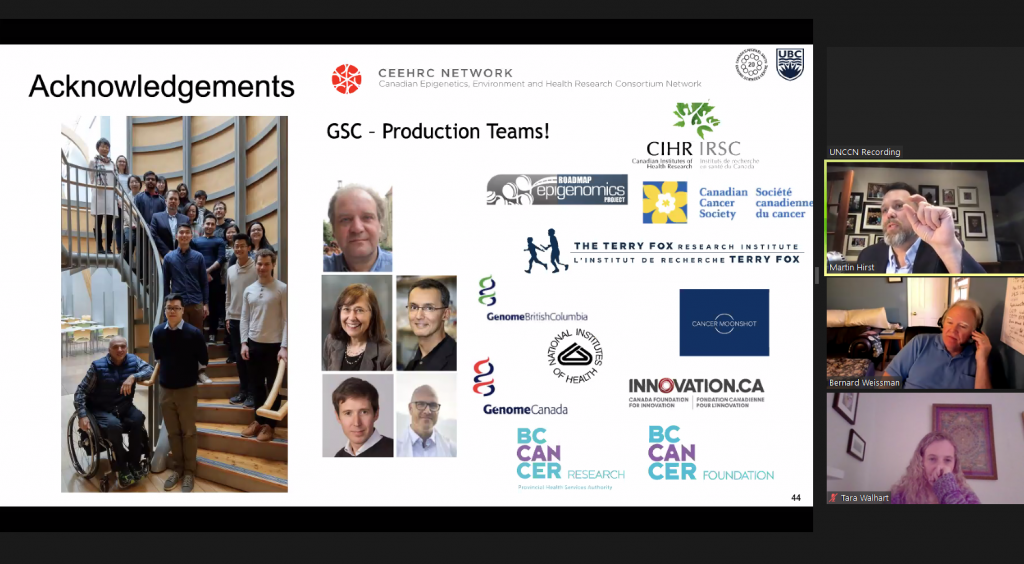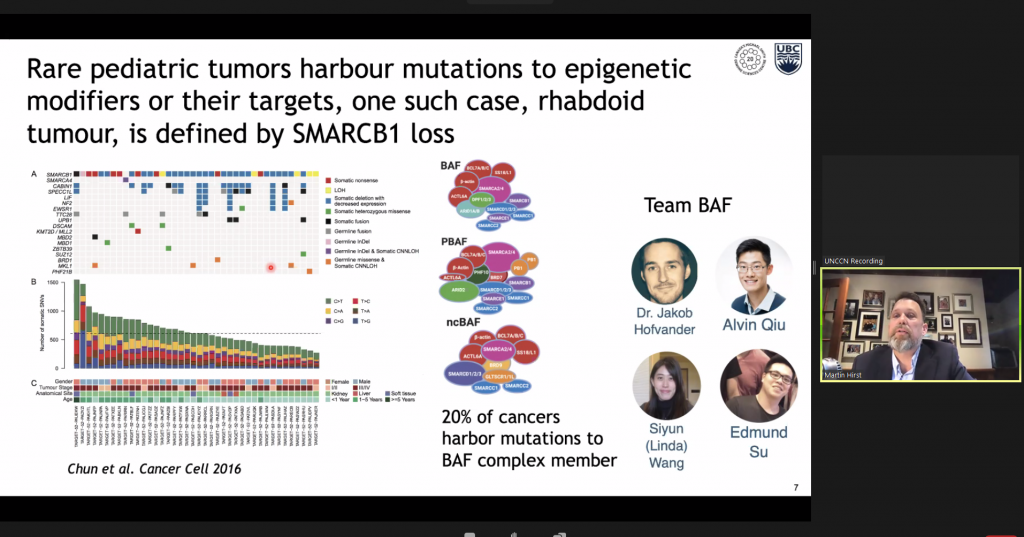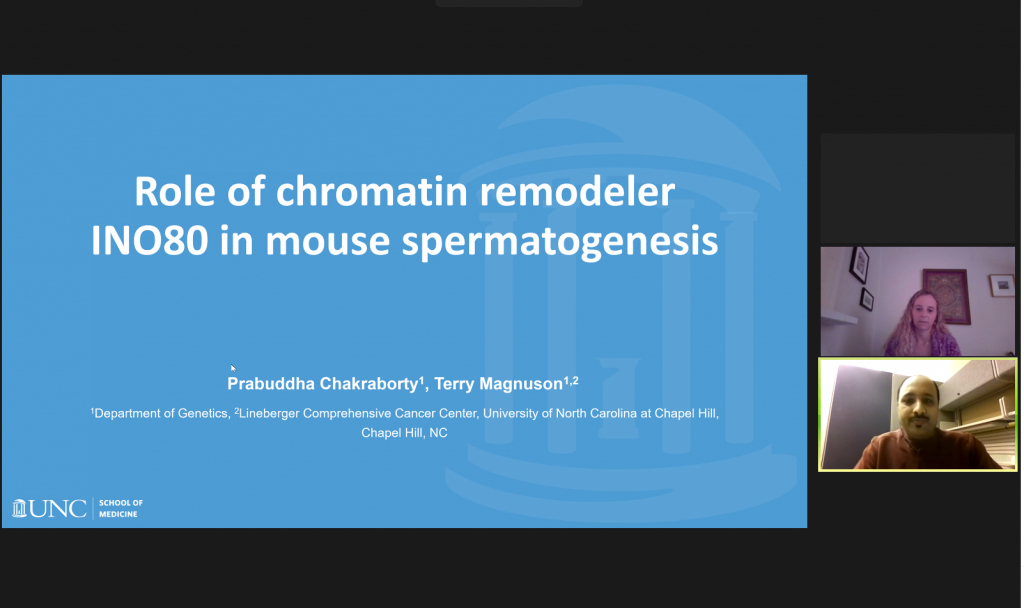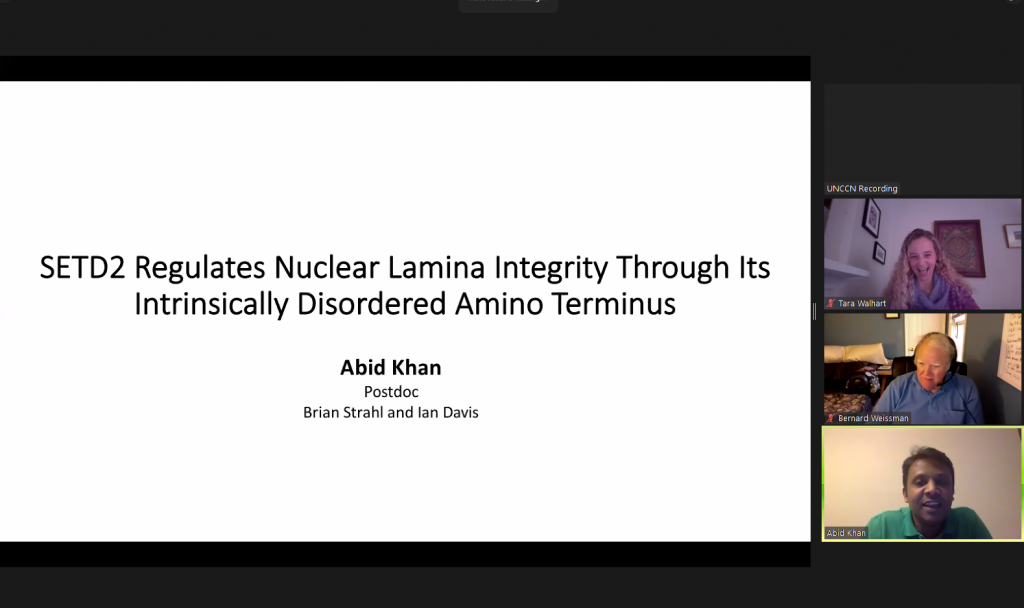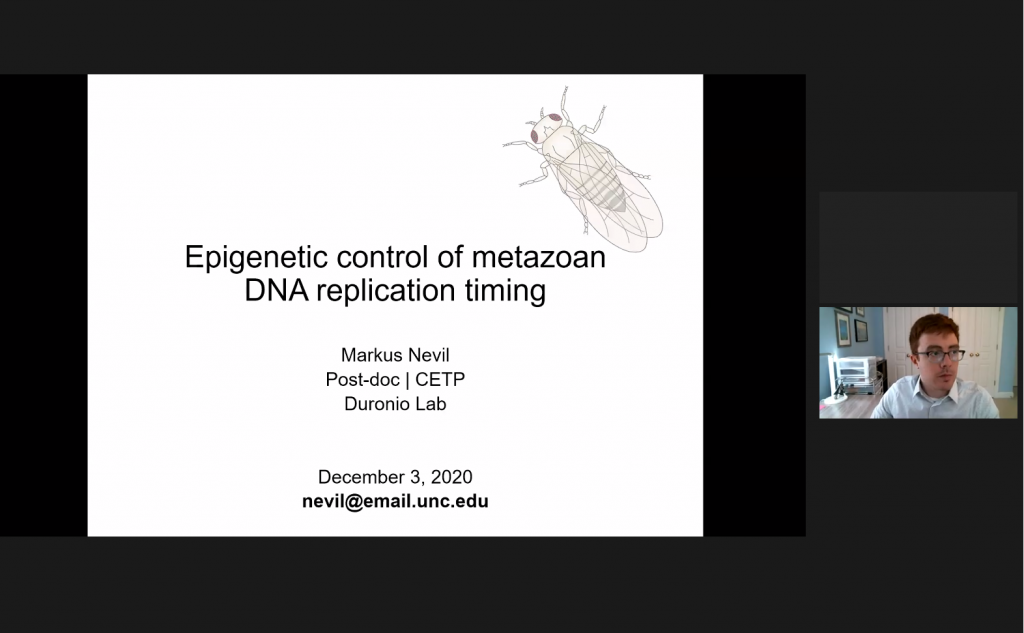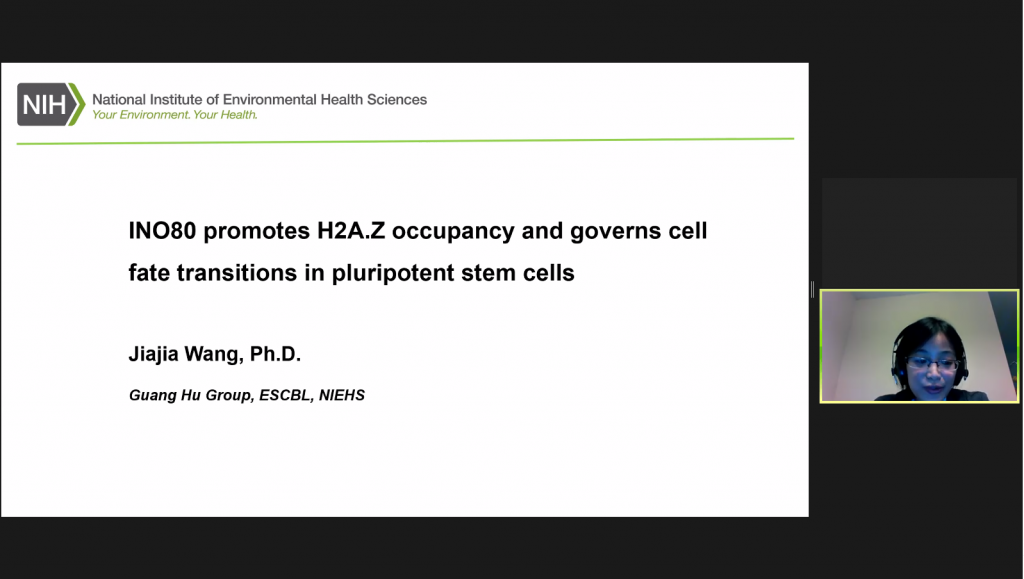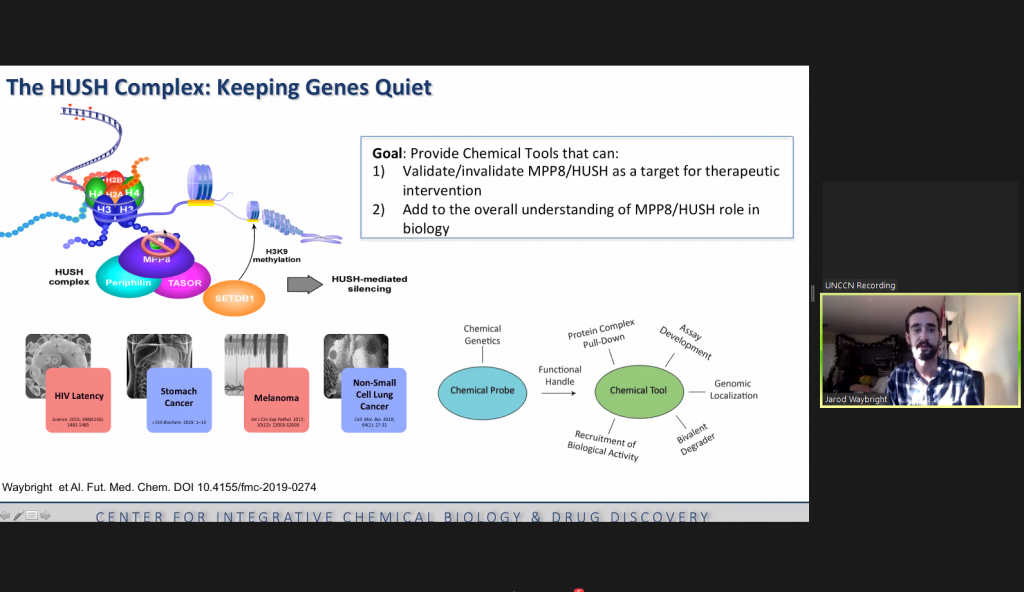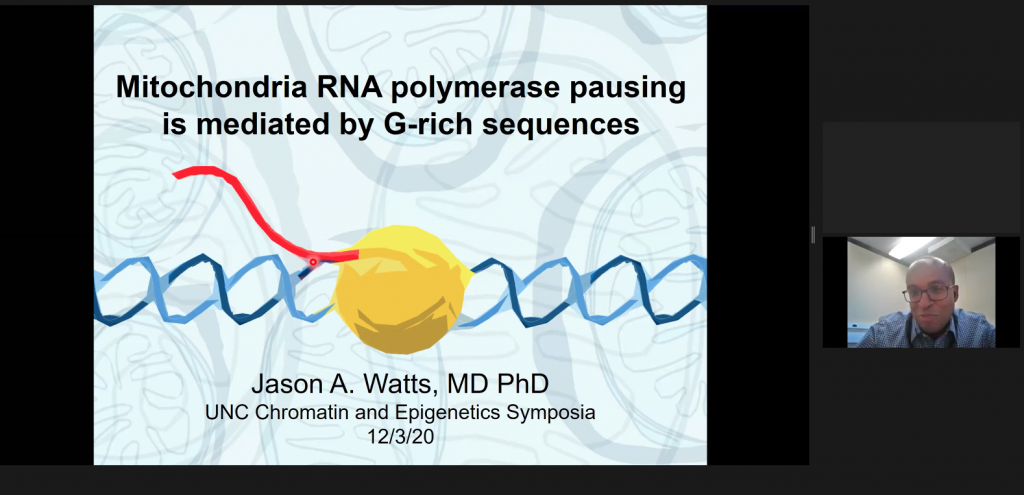The 4th Annual Chromatin and Epigenetics Symposium was held virtually on December 3, 2020. Our keynote speaker was Martin Hirst, PhD, from the University of British Columbia.
There was a poster session featuring submitted abstracts, with a select few selected for talks. Cash prizes were awarded for the best speaker and poster presentation:
Best Student Presentations: Nicole Arruda, Jarod Waybright
Best Student Posters: Kanishk Jain, Megan Justice, and Jeanne-Marie McPherson
The symposium is an annual event jointly sponsored by the Carolina Chromatin Consortium, the UNC Lineberger Cancer Epigenetics Training Program, IBGS, NIEHS and the UNC Lineberger Comprehensive Cancer Center.
About the keynote speaker
 Dr. Hirst is an Associate Professor in the Department of Microbiology and Immunology, Associate Director of the Michael Smith Laboratories at the University of British Columbia (UBC) and Head of Epigenomics at Canada’s Michael Smith Genome Sciences Centre. Dr. Hirst was one of the first in the world to successfully complete ChIP-seq, RNA-seq and miRNA-seq experiments on the nascent Solexa 1G platform and for the last 10 years he has led the development of an internationally recognized epigenomic research program at UBC and BC Cancer. As a member of the NIH Human Reference Epigenomic Mapping Consortium, he led the development of epigenomic analysis tools for comprehensive molecular profiling of human tissues and cells. He currently leads the Centre of Epigenomic Mapping Technologies (CEMT) that represents one of two Canadian epigenomic mapping centres funded as part of the CIHR signature initiative; the Canadian Epigenetics, Environment and Health Research Consortium (CEEHRC). Dr. Hirst currently chairs the Scientific Steering Committee of the International Human Epigenome Consortium (IHEC; ihec.org) and leads the Canadian Epigenetics, Environment and Health Research Consortium Network (epigenomes.ca) with a mandate to drive epigenetic research in Canada and internationally. Dr. Hirst is a highly cited researcher (2019) whose work focuses on understanding the role of epigenetic deregulation in cancer. To enable tracking and epigenomic profiling of rare subsets of normal and transformed cell types he recently developed a genomic barcoding strategy, a native ChIP-seq protocol, and a PBAT methodology for profiling DNA methylation genome wide down to a single cell level. He has applied these and other tools to explore the epigenomic states of highly-purified and functionally defined normal and transformed cell types including the characterization of vitamin C induced epigenomic reprogramming in leukemic models.
Dr. Hirst is an Associate Professor in the Department of Microbiology and Immunology, Associate Director of the Michael Smith Laboratories at the University of British Columbia (UBC) and Head of Epigenomics at Canada’s Michael Smith Genome Sciences Centre. Dr. Hirst was one of the first in the world to successfully complete ChIP-seq, RNA-seq and miRNA-seq experiments on the nascent Solexa 1G platform and for the last 10 years he has led the development of an internationally recognized epigenomic research program at UBC and BC Cancer. As a member of the NIH Human Reference Epigenomic Mapping Consortium, he led the development of epigenomic analysis tools for comprehensive molecular profiling of human tissues and cells. He currently leads the Centre of Epigenomic Mapping Technologies (CEMT) that represents one of two Canadian epigenomic mapping centres funded as part of the CIHR signature initiative; the Canadian Epigenetics, Environment and Health Research Consortium (CEEHRC). Dr. Hirst currently chairs the Scientific Steering Committee of the International Human Epigenome Consortium (IHEC; ihec.org) and leads the Canadian Epigenetics, Environment and Health Research Consortium Network (epigenomes.ca) with a mandate to drive epigenetic research in Canada and internationally. Dr. Hirst is a highly cited researcher (2019) whose work focuses on understanding the role of epigenetic deregulation in cancer. To enable tracking and epigenomic profiling of rare subsets of normal and transformed cell types he recently developed a genomic barcoding strategy, a native ChIP-seq protocol, and a PBAT methodology for profiling DNA methylation genome wide down to a single cell level. He has applied these and other tools to explore the epigenomic states of highly-purified and functionally defined normal and transformed cell types including the characterization of vitamin C induced epigenomic reprogramming in leukemic models.
